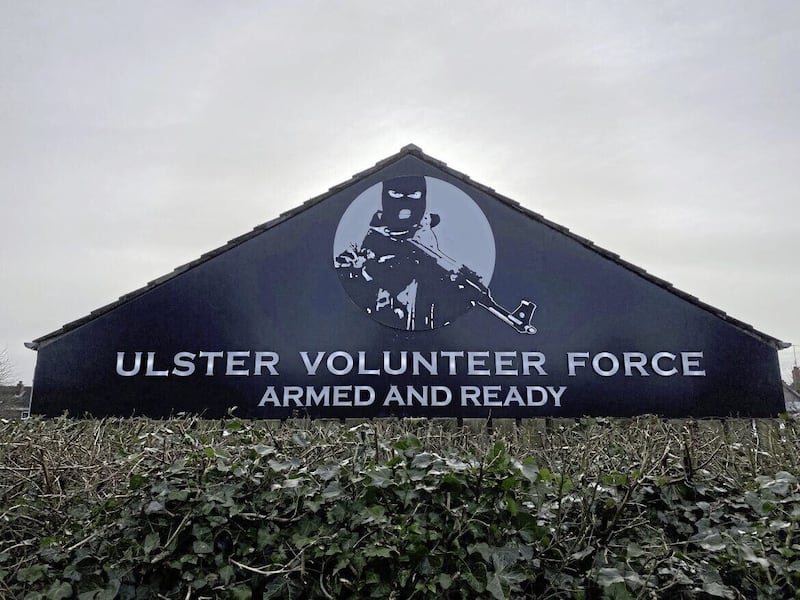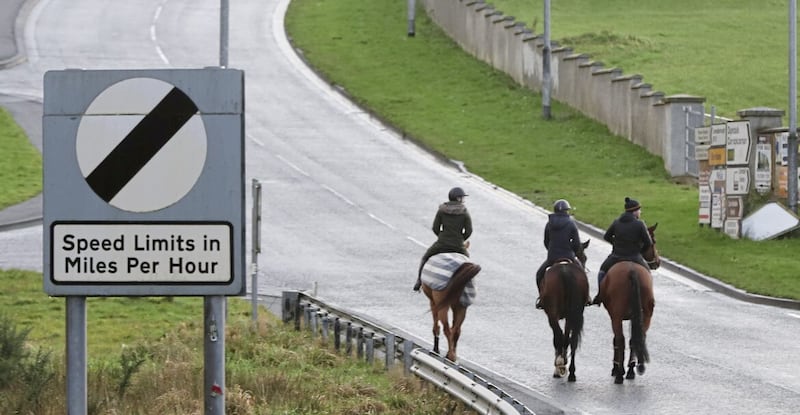GROWING speculation on a May general election may prove fatal to hopes of restoring Stormont any earlier.
It had been assumed the election would be next October and the DUP would baulk at stalling for another year. A five-month wait for a Labour government looks very different, especially with the Conservatives falling apart.
Holding onto his Westminster seat in Lagan Valley will be among DUP leader Sir Jeffrey Donaldson’s calculations. Why take any risk rushing back to Stormont while his party’s opinion polling remains strong?
Read more:
- Newton Emerson: The DUP could pull off a 'Windsorsceptic' return to Stormont – but does it have the nerve?
- Newton Emerson: Competence or culture war? The DUP's dilemma
- Tom Kelly: Time to end unionist self-harm and test Harold McCusker's hypothesis...
**
Unionists have responded to a Westminster report on Stormont reform by starting an arcane argument about the role of the Irish government.
The report by the cross-party Northern Ireland Affairs Committee recommended reforms including changing the titles of the first and deputy first ministers to the joint first ministers and replacing cross-community voting with a two-thirds weighted majority. It added that the government should make these changes “in close consultation with the Government of Ireland and the Northern Ireland parties”.
The DUP replied that “there can be no role for the Irish government in the internal affairs of Northern Ireland”. The UUP warned the committee was setting a “dangerous precedent”.
Strictly speaking, both parties have a point. The Irish government has no role in running Stormont. But it clearly has a role in fixing it, recognised in the review and oversight mechanisms of the Agreement, not to mention the many all-party talks it has co-chaired with London.
If anything, Dublin has been too reluctant to back reform, putting Sinn Féin under no pressure to renounce its large-party veto.
**

One of the Irish government’s roles in Northern Ireland is jointly overseeing the 2015 Fresh Start programme for ending paramilitarism and tackling organised crime.
Part of this system is an independent commission to monitor progress. Its latest report, published this week, notes both governments are working well together and the programme is delivering results. It expands on a proposal in its last report for London and Dublin to appoint “an Independent Person to prepare the ground for a possible process of Group Transition” – in other words, a disbandment commissioner.
There is almost no awareness of this in the Republic, which must be how the Irish government likes it, given how rarely it mentions the subject despite praising every other cross-border initiative to the heavens.
Read more:
- Why are we still tip-toeing around our paramilitary problem?
- East Belfast UVF is being 'stood down'. But why aren't all paramilitaries being put out of business?
- Chris Donnelly: Will loyalist paramilitary 'transitioning' ever end?
**
The Public Prosecution Service has announced it will not press charges against 16 individuals reported to it by the Stakeknife inquiry. They include former IRA members, soldiers and a police officer. Because the PPS knows this will raise suspicions it has taken the unusual step of explaining its decision in a detailed 24-page statement.
This sets out the multiple reasons why most Troubles-era evidence comes from intelligence records that are useless in a criminal trial – not because they have to be kept secret, but because the basic nature of intelligence gathering means they are of too low a standard to be admissible in court, let alone to secure a conviction.
This has obvious implications for the Troubles legacy debate. There might as well be an amnesty if prosecution is effectively impossible. All that the theoretical risk of prosecution achieves is to ensure people keep their secrets to themselves.
**
Unlike most UK police forces, the PSNI does not routinely release custody photographs or ‘mugshots’ of convicted criminals. This has been challenged by a Fermanagh woman whose husband was killed by a drunk-driver. The victims of crime commissioner says the PSNI’s policy is “inconsistent” – it released the photograph of a driver who killed a teenage student in 2018, after a media outcry.
The PSNI told the BBC it “considers each request for a custody image in accordance with legislation applicable in Northern Ireland, police service policy and ECHR (European Convention on Human Rights) and data protection principles”.
As noted in this column many times, whenever you hear the words ‘data protection’ you should immediately think ‘bullshit’.
**
An east Belfast woodland was cut down by accident due to a communication error, NIE Networks has claimed. In a statement to Belfast City Council, it said contractors received the correct written instructions but “the works themselves deviated significantly”, with “changes made without rigour and on an ad-hoc basis, with the effectiveness of communication between the working?party and their NIE Networks contact on the 19th May being a particular issue”.
In other words, the ‘communication error’ was not standing beside the contractors telling them to follow instructions.
**
Immigration is not devolved, so the home secretary’s plan to reduce it will apply in full to Northern Ireland when it comes into effect next Spring.
The salary threshold for migrant workers will rise by a half to £38,700, well over Northern Ireland’s £30,000 median wage. In practice, few people should be caught by this as there are so many exemptions for ‘shortage occupations’. The ban on bringing in family members is likely to deter more potential recruits, particularly in health and social care.
Northern Ireland’s agrifood industry also looks exposed. It struggles to hire locally and also struggles to get the Home Office to treat its labour shortages as a priority.
Moy Park suspended live chicken processing in Ballymena for most of last year, with knock-on effects for farmers, because it could not find enough staff.
On the plus side, less slurry would help the environment. A new modelling exercise by the Agrifood and Biosciences Institute has found Lough Neagh’s recovery could take 40 years.
**

The latest opinion survey from Arins, an all-island academic project jointly funded by The Irish Times, has found constitutional views are pretty much where they have been for decades: 50 per cent for the union, 30 per cent for a united Ireland and 20 per cent unsure or in-between.
This might seem extraordinary after so much recent change and upheaval. It could be seen as reflecting the sterile intractability of a dispute over competing national identities.
However, there must be another at least partial explanation. Even in Northern Ireland, even in extraordinary times, many people just don’t pay politics that much attention.







